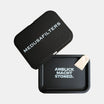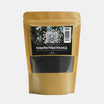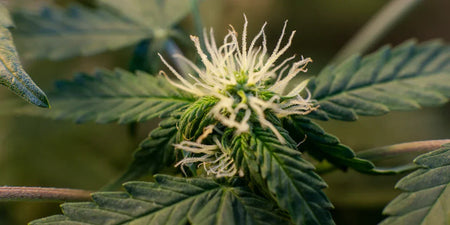CBD for pain: Cannabinoids as natural active ingredients
The most important thing on the topic
The role of CBD in pain management
Discover in which cases and how medical cannabis is prescribed for pain patients.
Read moreWhat does science say?
In this section you can find out more about the current state of research on pain management with CBD.
Read moreWhat is CBD (cannabidiol)?
Pain is a pervasive challenge that many people face throughout their lives. Whether it's acute pain following an injury or chronic pain that interferes with daily life, finding effective pain relief options is crucial. In recent years, CBD (cannabidiol) has received a lot of attention. CBD is a cannabinoid found in the hemp plant. Unlike THC (tetrahydrocannabinol), another important cannabinoid, CBD does not cause an intoxicating effect [1]. CBD can be extracted from different varieties of hemp that are specifically bred for their low THC content. CBD extraction usually occurs from the flowers, leaves and stems of the plant. There are a variety of cannabis products on the market including CBD oils, capsules, topicals, and more.
The role of CBD in pain management
Since 2017, it has been possible in individual cases to prescribe medical cannabis products as an alternative therapy option for patients with serious illnesses [1]. Medical cannabis can be an option in different situations and for different painful conditions, especially when conventional painkillers or therapies are not sufficiently effective [2]. This is the result of scientific evidence and clinical studies examining the potential role of CBD in pain management [2]. The important cannabinoid can have anti-inflammatory and pain-relieving effects without the intoxicating effects of THC [2]. The use of CBD as a medicine to relieve pain has been tried in various diseases [2,3]:
- Chronic Pain: CBD may play a role in chronic pain such as that found in fibromyalgia, arthritis, and chronic back pain.
- Neuropathic pain: Cannabis could help with neuropathic pain, which is often due to nerve damage, such as diabetic neuropathy and post-herpetic neuralgia.
- Inflammation-related pain: CBD can reduce inflammation and relieve pain associated with inflammatory diseases such as rheumatoid arthritis and inflammatory bowel disease.
- Migraines: Some people use CBD to relieve migraine pain and prevent migraine attacks.
- Cancer-related pain: CBD may be considered as a complementary option for pain relief for cancer patients.
- Post-surgical pain: In some cases, CBD may be prescribed for pain relief after surgical procedures.
- Stress-related pain: CBD can help relieve stress-related pain or tension.

You can also use our products for CBD joints and CBD cigarettes
There are different methods of taking CBD. One of the most common methods is using CBD oil, which is usually dripped under the tongue and held there for about 30 seconds before swallowing [2]. Alternatively, there are CBD capsules that are convenient and easy to dose and are swallowed like traditional capsules. For local pain or skin problems, CBD creams, ointments and lotions can be applied directly to the affected area [2]. There are also edible CBD products such as gummies, cookies and drinks that can be consumed. If a faster effect is desired, CBD can be inhaled using a vaporizer or even smoked, although the latter method is less recommended due to the health risks involved [2]. The decision to prescribe CBD for pain relief usually rests with the treating physician, who takes into account the patient's individual situation, previous therapy experiences and possible interactions with other medications [1]. CBD can cause side effects such as fatigue, nausea, diarrhea and appetite changes [1].
What does science say?
A recent study published in the "Journal of Pain Research" found that CBD may be effective in relieving pain, sleep disorders and anxiety in patients with chronic pain [4]. CBD has the potential to be a natural alternative for pain relief for people with various painful conditions [3]. It offers anti-inflammatory and pain-relieving properties without the psychoactive effects of THC [4] Research into CBD and pain relief is ongoing, and future findings may provide further insight into its use for pain relief [4].
You can find out more about CBD here
Further questions
CBD is often considered as an alternative to traditional painkillers for chronic pain caused by conditions such as arthritis, fibromyalgia or neuropathic pain [1]. Since 2017, medical cannabis products can be prescribed on an individual basis as a therapeutic alternative for patients with serious illnesses to relieve pain and treat other symptoms.
CBD is available in various forms including oils, capsules, creams, gels and even vaporizer liquids. The choice of shape depends on individual needs and preferences.
Yes, there are potential interactions between CBD and certain medications [1]. It is important to speak to a doctor before taking CBD, especially when taking other medications [2]. The doctor can provide information about possible interactions and recommend the correct dosage [1].
Sources:
[1] German Society for Pain Medicine eV
[2] Hempati



























